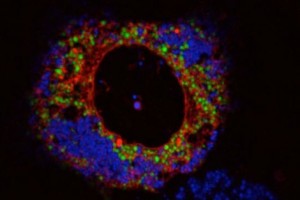Diabetes prevalence is on the rise, with 29.1 million people suffering from the disease in the U.S. alone. But this may be about to change, with a recent study exploring an innovative new treatment for diabetes which could manage, if not cure, the disease.
Regulating Blood Sugar
Diabetes occurs when the human body can no longer process sugar (glucose) correctly. When this happens sugar levels can increase drastically, building up in the blood stream. An organ called the pancreas normally produces a hormone called insulin which allows the body to absorb this sugar at manageable rates, however in individuals with diabetes this organ either doesn’t produce enough insulin, or in the worst scenarios produces none at all. Without the ability to absorb sugar, the body will suffer moderate to severe symptoms and in some cases will result in death.
Until now scientists haven’t been able to discover the mechanisms at play, so that doctors can provide treatments which help the body resist diabetes. What separates this recent study from others is that it actually tackles this inability to use glucose directly, and may have discovered a critical component of the disease in the process.
New Diabetes Breakthrough
Researchers at Harvard T. H. Chan School of Public Health in Boston have identified a way, in theory, to regulate how the body absorbs glucose. This doesn’t just apply to diabetes, but many other metabolic diseases such as chronic liver problems such as fatty liver as well.
This study published in Science Translational Medicine measured the glucose regulation and levels of liver fat in laboratory mice. These mice were fed to the point of being obese, as obesity is a major component of Type 2 diabetes and its often age-related onset. Specifically, it is the adipose tissue (fat) which has been directly correlated with higher instances of diabetes, heart disease, atherosclerosis and other dangerous conditions. Healthier glucose regulation was achieved by targeting the product of this adipose tissue – hormones which spread throughout the body affecting organs and other biological processes in a negative way.

The theory then is that if you can limit these hormones in some way, or at least change their function, that the likelihood of diabetes and other diseases will decrease. The researchers at Harvard seem to have achieved just that, in mice at least. Monoclonal antibodies were used to target these hormones, inhibiting their effect on glucose regulation as well as the build up of fat in the liver.
All of this indicates that medical science could be on the verge of a medical breakthrough for one of the most ubiquitous illnesses in the modern world, and may shed light on other life-threatening diseases which affect the cardiovascular system, liver, and brain.
Milestone Study
This study, if replicated in humans, could transform how diabetes and other serious illnesses such as heart disease are treated. It is the first study of its kind to truly establish that adipose or fat tissue produces hormonal changes which seriously restrict the body’s ability to absorb and process sugar. It is also the first piece of experimental research which shows that these changes can be targeted as they occur, boosting the search for other similar advances. This raises the potential for therapeutic medicines if the same process holds true for humans.
Those who are at risk of becoming diabetic may be able to halt the disease’s progression, and in those who already suffer from the condition, there is hope that one day it may be reversed, or at the very least its effects lessened or blocked altogether.

Hi there, I found your website via Google while searching for a related topic, your web site came up, it looks good. I have bookmarked it in my google bookmarks.
Hey there, You have done a great job. I will definitely digg it and personally recommend to my friends.
I am sure they’ll be benefited from this web site.
I’m amazed, I must say. Rarely do I encounter your blog that’s equally educative and amusing, and undeniably,
you possess hit the nail about the head. The problem is something which too few everyone is speaking intelligently
about. I am happy I came across this during my look for something concerning this.
Hello there, You’ve done an excellent job. I will
certainly digg it and personally recommend to my friends.
I am sure they will be benefited from this site.
May I simply just say what a relief to uncover someone who genuinely knows
what they are talking about on the web. You definitely
understand how to bring a problem to light and make it important.
More and more people need to check this out and understand this side of the story.
It’s surprising you are not more popular given that you most certainly possess the gift.
My brother suggested I may like this website. He was entirely right.
This put up actually made my day. You can not consider simply how a lot time I had spent
for this info! Thank you!